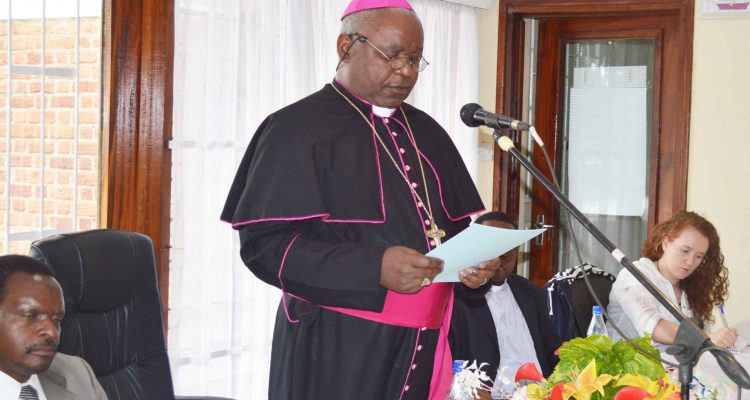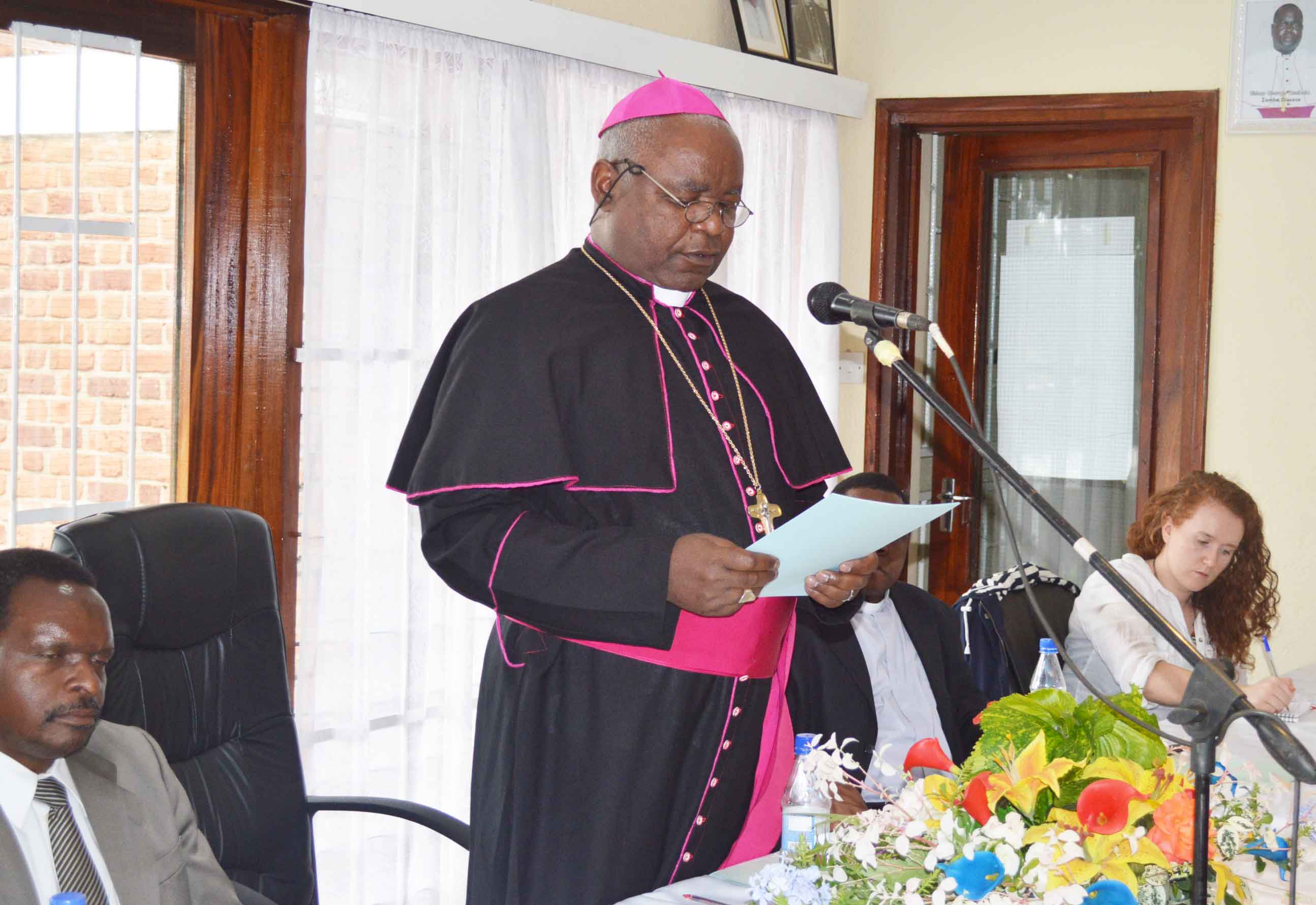
…as Bishop Mtumbuka bemoans plunder of public resources
The Catholic Education Commission (CEC) of the Episcopal Conference of Malawi (ECM) in partnership with the Scottish Catholic International Aid Fund (SCIAF) on Monday, February 27, 2017, launched a three-year project dubbed ‘Hope for Youth’ with funding from the European Union (EU).
The project which is aimed at empowerment of women and vulnerable groups through vocational and entrepreneurship skills education in Malawi will be implemented in Catholic’s Technical Colleges which are; Andiamo Technical College (Balaka), Namitete Technical College (Lilongwe), Mitengo Technical College (Thyolo), Thondwe Village Polytechnic and Namitembo Trade and Agricultural College (both Zomba).

Guest of Honour, His Lordship Martin Mtumbuka, Chairman of the Catholic Education Commission said the project is timely as it will address issues of high drop out among girls, engage youth participation in development activities and accommodate people living with disabilities that they should equally access quality education.
Bishop Mtumbuka said ECM has from 1970’s been implementing social-pastoral projects aimed at providing services to the disadvantaged population of Malawi, hence the project is in line with the institution’s strategic frame work as well as the Malawi Government and Development Strategy and the Global Sustainable Development Goals.
“It is through such initiatives, that the Catholic Church touches lives of so many vulnerable Malawians in an effort to improve their livelihoods,” said Bishop Mtumbuka.
Rt. Rev Mtumbuka, who is also the Bishop for Karonga diocese expressed concern over continued plunder of public resources which has off late been a concern for international donors and as a result, renders Malawi undeveloped nation.
“In this regard, I would like to challenge CEC to use the resources for the intended purpose. We are a Church and we should be the light and salt to the world,” he said.
Head of Cooperation at the EU delegation, Lluis Navarro said he was delighted to note that the project will focus on expanding access to formal and informal Technical, Vocational and Entrepreneurship Training (TEVET).
He also said the project will increase opportunities for female and vulnerable students to complete their vocational training.
“I am also pleased to learn that the project will include among other things basic literacy classes for school drop-outs, mobile units as well as weekend classes in order to allow even more youth to benefit from TEVET training,” said Navarro.
Acting Executive Director of TEVETA, Makulumiza Nkhoma commended the approach of the project which is aimed at responding to the construction sector requirements for skilled artisans and technicians hence allow the youth, specifically female and vulnerable groups to attain their full potential and be able to meet their social-economic needs.
EU is funding the project worthy 912,429 Euros at an exchange rate of 800 Malawi Kwacha.















Ya